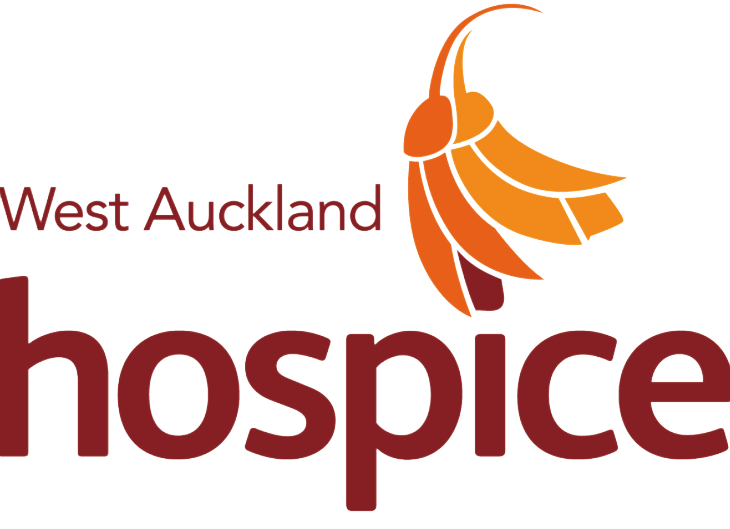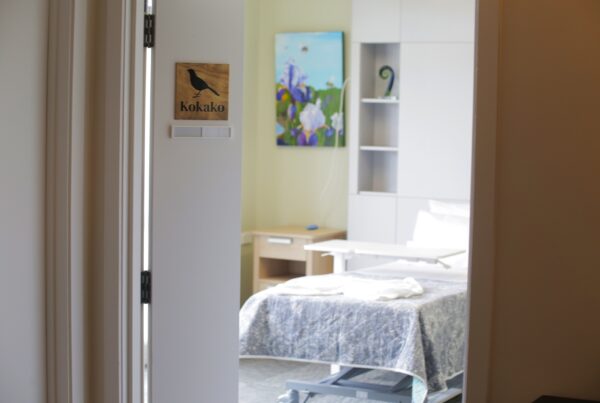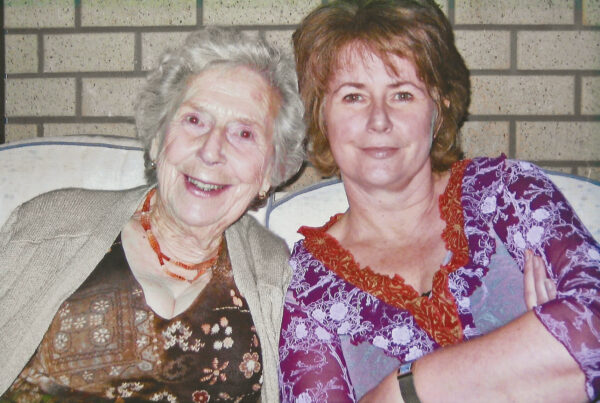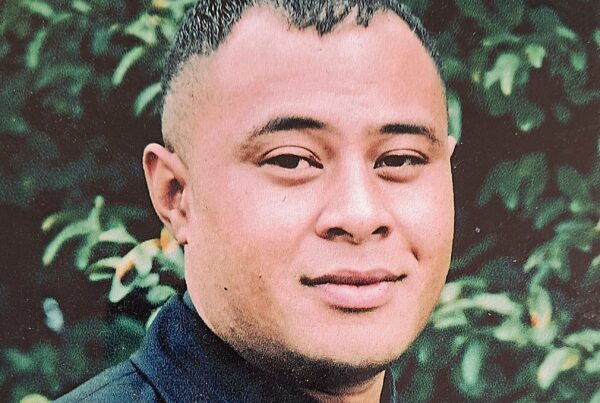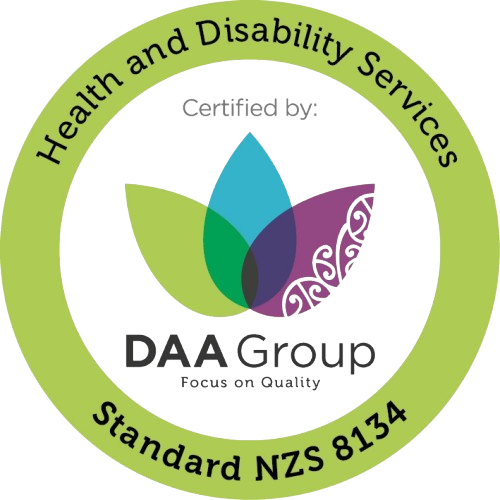Raised by her grandparents in a stable and loving home, Lizzie later returned that care and support when they each became unwell.
Through her work as a support worker for Geneva Healthcare, Lizzie had a lot of interactions with Hospice West Auckland. So when her Poppa was diagnosed with mesothelioma (asbestos cancer), it was reassuring to know that Hospice was there to support him – as well as support her in her role as caregiver.
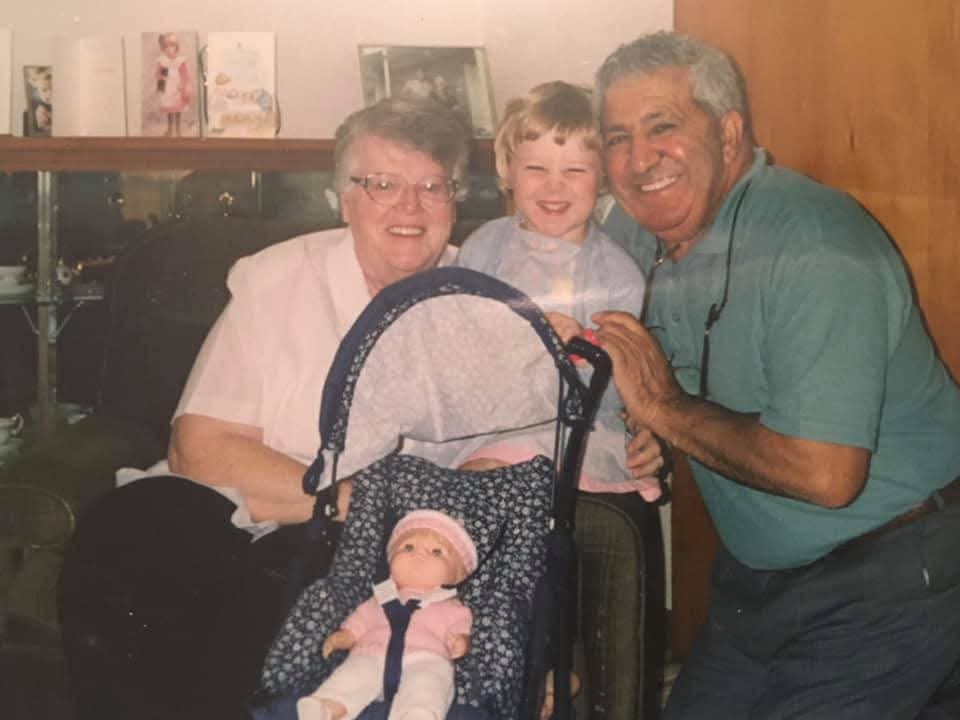
“He stayed at Hospice’s inpatient unit when things got bad, and before that Hospice also came to help at home,” says Lizzie. “They supported us with medications and all the extra bits and pieces we needed to keep him comfortable.”
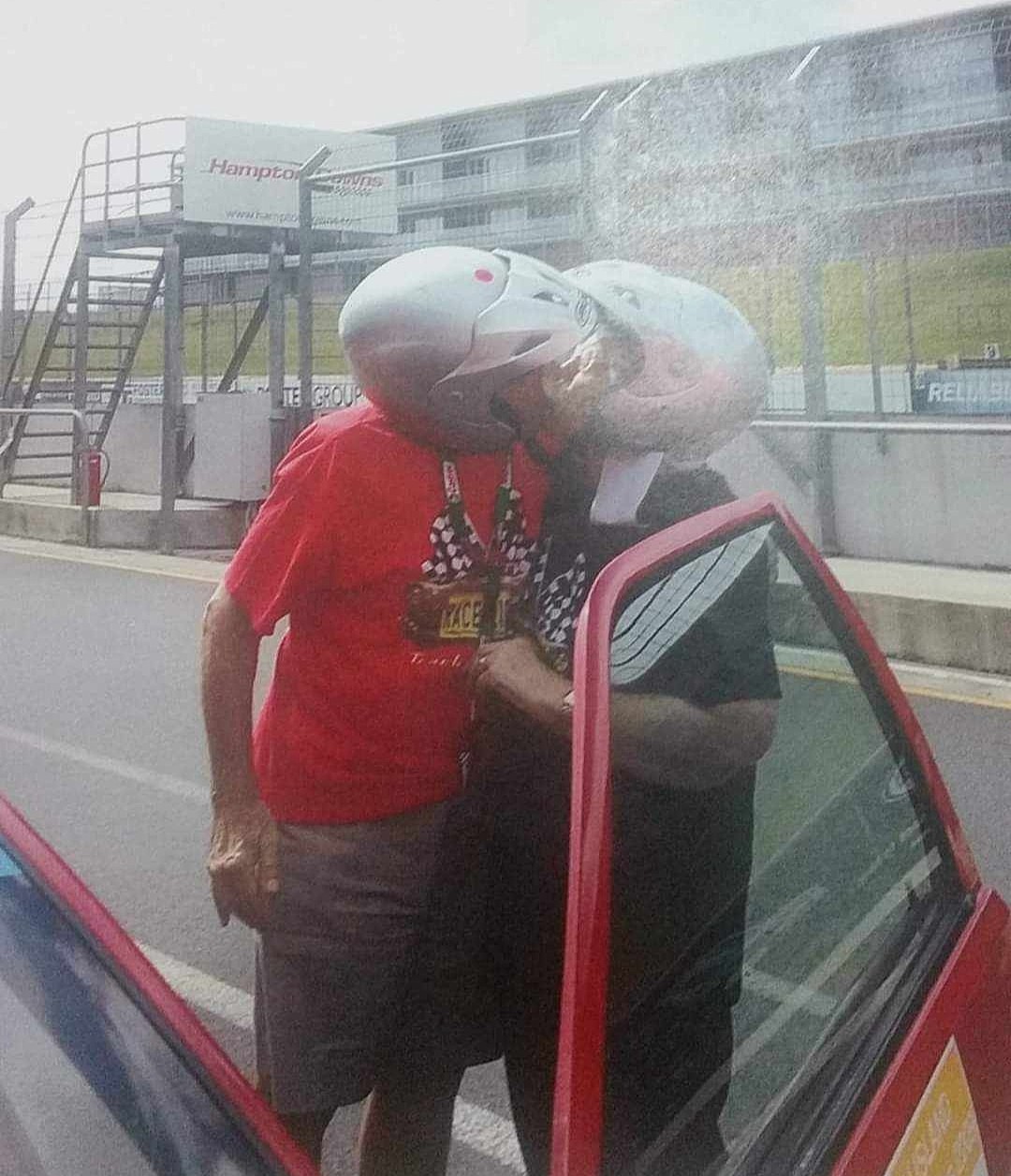
Through Hospice her grandparents attended the Race4Life Track Day at Hampton Downs, a special annual event provided by the Race4Life Trust for palliative care patients and their loved ones. The day was a true highlight for the couple – captured with a photo of them trying to exchange a kiss in their bike helmets.
When her Nana became ill years later, Hospice’s role became even more central. Her grandmother was very clear that she wanted to stay at home. “She didn’t want to die in hospital or in Hospice — she wanted to die at home,” explains Lizzie. “Hospice supported us to make it possible.”
Lizzie quit her job and moved in with her grandmother to provide more hands-on care. She cared for her while also raising her young son with the help of friends and family. “It was really intense, but worth it — 100% worth it. I’d do it all over again in a heartbeat. Those last weeks were so special, even with the hard parts.”
Led by Clinical Nurse Specialist Charlie, the Hospice community team visited regularly – setting up Lizzie’s Nana with a syringe driver to manage her pain and symptoms, arranging essential equipment, and guiding the family through what to expect. “Hospice taught me and my Aunty and Uncle how to use the syringe driver,” says Lizzie. “Charlie and the team answered every question patiently, whether it was mine, Nana’s, or my Uncles’. Hospice were always available, even in the middle of the night when things got scary. Having that backup made such a difference.”
The support was not just practical but also compassionate. “One of the hardest things was being told Nana might bleed out because of her condition,” Lizzie explains. “Hospice prepared us, even suggesting we have red towels on hand. It was confronting, but they gave us the knowledge to cope.”
Caring for her grandmother was a bittersweet mix of both painful and precious moments. Lizzie remembers her Nana’s determination vividly. “She was so headstrong. Even when she was losing words, she insisted on writing a shopping list. She wrote things like ‘hot toasted flakes’ instead of cornflakes, and ‘big cake’ instead of birthday cake. I’ve kept that list because it shows her spirit right to the end.”
There were moments of frustration too. “Nana was told she had six weeks, but she lived for 21 weeks,” smiles Lizzie. “She used to get annoyed and say, ‘They told me six weeks — why is it taking so long?!’ She even asked about Assisted Dying at one point. But in the end, she had the extra time she needed, and we had it with her.”
Lizzie also treasures the way Hospice helped her Poppa hold on to dignity and joy. “One of my most special memories is planning Poppa’s funeral with him. He sent everyone else out of the room, sat me down, and said, ‘It’s your job — you sing at people’s funerals, and you’ll do mine.’ It was strange but really special. And Nana and I wrote out her service together before she passed. Those are things I’ll never forget.”
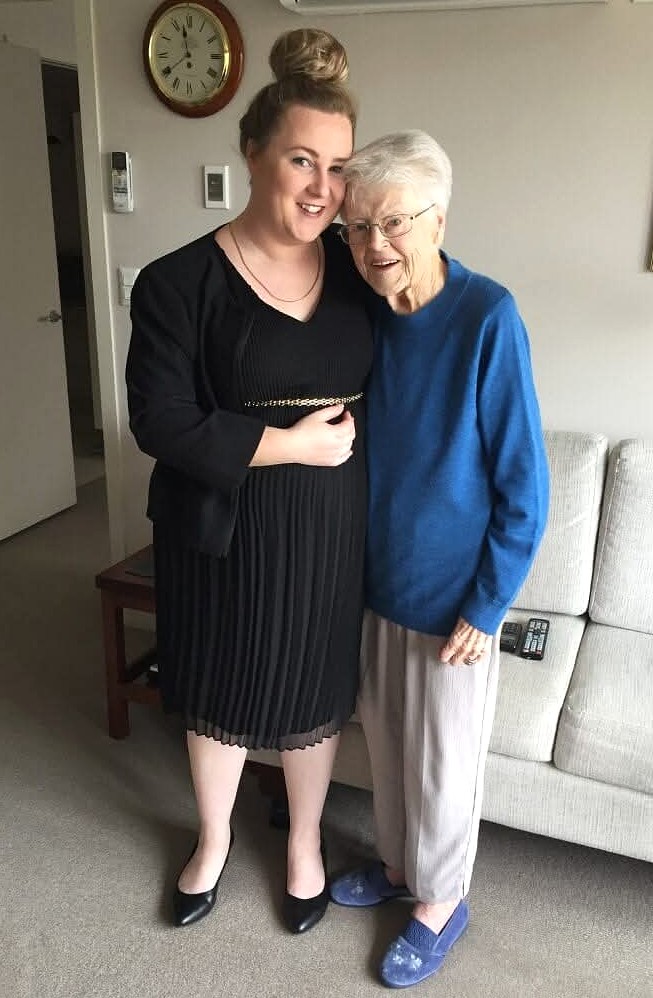
A shared love of music provided many special moments in their family. “Poppa used to play the piano while I sang, even when he was very unwell. With Nana, I was able to give concerts at her retirement village. Being able to share music with them was a way of giving back for all they had given me.”
Looking back, Lizzie says being a young caregiver had a huge impact on her life. “I treated Nana a bit like one of my healthcare clients at first, but when she passed, the grief hit me hard. Hospice offered grief counselling, and though I didn’t take it then, I knew it was there. Only later did I realise how much I’d suppressed.”
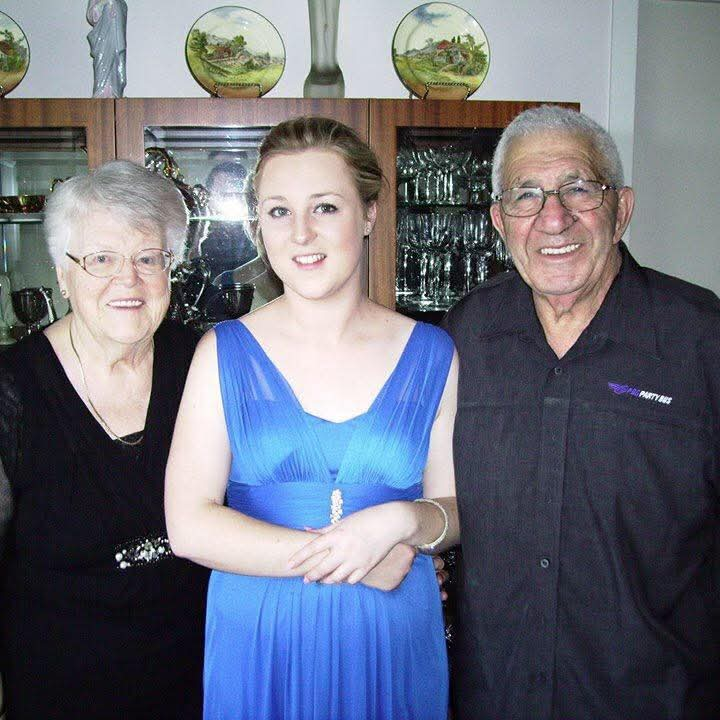
Today, Lizzie works in a community hub role she loves, supporting people from all walks of life in a huge variety of ways. Her caregiving journey has provided a foundation for the empathy she brings to her work. “Caring for Nana and Poppa was my way of honouring them,” she says. “Hospice helped me make the most of that time. It was a really special way to give back to the people who gave me everything.”
